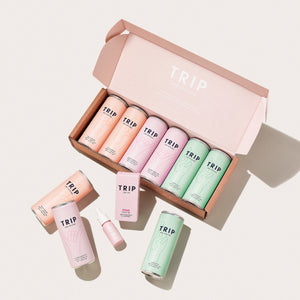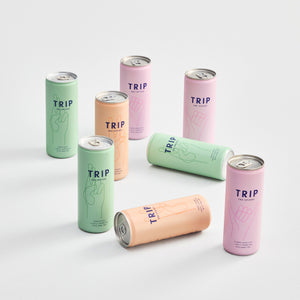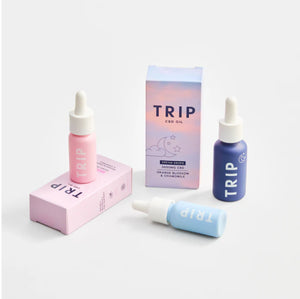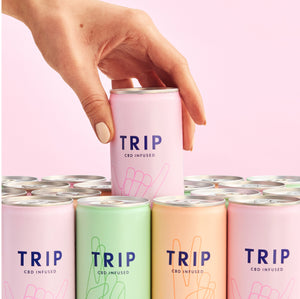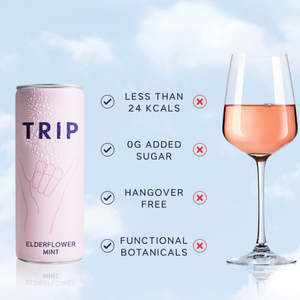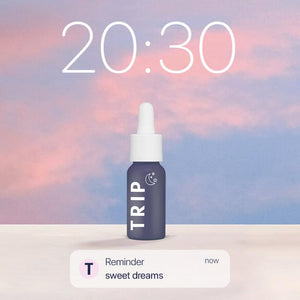While CBD is the trendy new kid on the block, it’s often recognised for its associations with THC (tetrahydrocannabinol), the psychoactive compound that causes users to “get high”. Many then question whether or not CBD will show up on drug tests requested by their workplace or athletic organisation. Depending on the nature of the job, your employer may frequently test staff, while drug testing is common for athletes to prevent the use of illegal performance enhancing drugs.
As CBD derives from the hemp plant, which can naturally contain THC, it’s worthwhile doing your research before beginning your CBD journey. Drug tests do not specifically screen for CBD, it’s the THC content that will show up and could theoretically cause someone to fail the test. Most CBD products on the market are THC-free, including our CBD oils and drinks, however, there are multiple reasons why a test result may be positive. Here we explore these.
Will CBD oil show up on a drug test?
If you consume CBD oil, it should not be identifiable on a drug test. As touched upon what does show up, though, is THC. CBD originates from the hemp plant, which contains the whole spectrum of cannabinoids, including THC. Due to this, it is possible for CBD oil to result in a positive test if the product you consume contains THC too. While the CBD compound is not screened per se, THC is traceable.
Generally speaking, it should not show up if you have purchased CBD products from a regulated seller as these will contain very low amounts of THC, or none at all. It’s therefore highly unlikely that your workplace or athletic drug test will be positive if you have carefully considered where you buy your CBD oil from.
How does CBD show up on a drug test?
While manufacturers of CBD may claim that their products have no THC content, this isn’t always the truth, which is why it can show up on a drug test. You may find that your CBD oil is flagged up if it hasn’t been third-party tested or is wrongly labelled, displaying an incorrect THC percentage. False positives are another explanation. This tends to occur if the person is also taking other drugs, such as dronabinol, nonsteroidal anti-inflammatory medications (NSAIDS) like ibuprofen, naproxen and sulindac, or pantoprazole and efavirenz.
Negligence might play a role too. Some suppliers will cut corners by using cheaper extraction methods that don’t remove all of the THC. As there isn’t any regulatory standard for extractions processes, the risk of THC being present in your CBD products increases as a result.
A urine drug test (or immunoassay test) will identify if someone has any THC in their system. This method uses antibodies designed to latch onto specific drugs and its metabolites. In this situation, the test would be looking for the presence of THC. If the antibodies identify it, you’ll receive a positive result.
It’s worth noting that, while your CBD oil shouldn’t contain THC, if it does, it may be detectable for three days after a single use, or more than 30 days for frequent use. This is because THC is a fat soluble that slowly releases when the person burns or recycles this fat.
What are the types of CBD?
There are three different types of CBD, and each contains varied levels of THC. It’s important to understand the differences between the types as some have higher percentages of THC than others.
- Full-spectrum CBD
This contains all of the naturally occurring compounds in the plant, including CBD, terpenes, flavonoids and other cannabinoids such as THC. As full-spectrum CBD tends to be extracted from cannabis plants other than the hemp plant, it can have varying amounts of THC. That said, full-spectrum CBD that’s derived from hemp is legally required to contain less than 1mg of THC. It is possible for this type to show up on a drug test!
- Broad-spectrum CBD
These contain additional compounds too, including terpenes and cannabinoids such as THC. However, most of the time, nearly all of the THC content is removed, meaning broad-spectrum CBD products may only have trace amounts — this might still be identifiable in a drug test, though.
- Isolate CBD
This contains nothing but pure CBD. It comes from the hemp plant and naturally has very little THC, and therefore will not show up on your workplace or athletic drug test. You can take larger doses of isolate CBD without worrying about the presence of THC.
Which substances are banned or illegal in the UK?
CBD is completely legal and safe to use in the UK, provided products meet the specific government standards to be bought and sold here. Legal CBD products must contain no more than 0.2% THC, otherwise they will be classed as a prohibited substance.
As we mentioned earlier, athletes must regularly undertake urine drug tests to ensure they are not using any performance enhancing drugs. These test for substances within certain banned categories, including androgens (growth hormones), stimulants, diuretics, narcotics and cannabinoids like THC. If you’re a sportsperson who uses CBD oil in your daily routine, it is possible for it to show up in a drug test if you buy an unregulated or contaminated product.
These substances are also prohibited in the workplace and if they are present in a drug test, it’s likely you’ll face serious consequences. You might have to attend a meeting with your boss or even face job loss. This includes any alcohol you consume or drugs you take at work — prescription medications are excluded from this.
How do I avoid testing positive when consuming CBD?
By now you should hopefully better understand how it’s possible for CBD to show up on a drug test. If CBD oil or any other CBD-derived product is becoming a regular part of your routine, you can avoid the possibility of testing positive by always checking how reputable and trustworthy the brand in question is.
Many CBD companies, including us at TRIP, ensure the purity of products through third-party lab testing. Remember to check the label before consuming CBD. Identify which plant it originates from and what kind of CBD it contains.
Thorough research will set you on the right path and help you to achieve balance in your life without risking your job or professional hobby.



